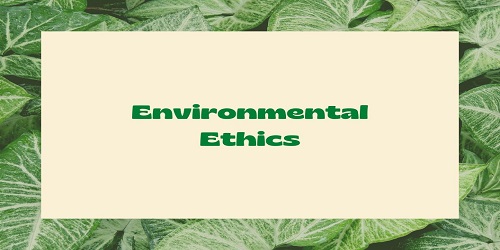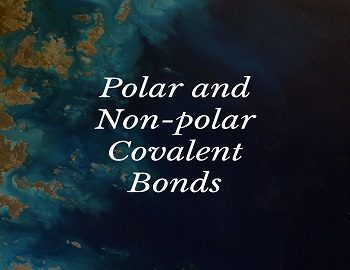Environmental Ethics:
“Ethics” is derived from the Greek Word “Ethos”, which has a broad mean as character of a person as described by his or her actions. The main theme of ethics like the environment is degraded by the cultural, religious, and ethical attitudes of man. The various issues, principles, and guidelines are associated with human interactions with their environment. There are different types of environmental ethics:
- Conservation- In which it’s our duty for conserving natural resources and stabilize a balance between resource use and resource availability.
- Development- It depends on the action and is inevitable.
- Preservation- The natural environment gives us a beautiful place, so it is our duty to maintain it for enjoyment, meditation, breeding, etc. and some rare and endangered species must be preserved. But today several countries face a number of environmental problems that threaten not only human health and the growth of ecosystems. Environmental ethics emphasize environmental protection acts, but also change in our daily life and the social system must change to become compatible with the global ecology. An exhaustible resource highly requires to regain balance. Balance by reducing the needs and use of material must be replenished.
There are two world views in relation to environmental ethics:
(1) Anthropogenic Worldview- This view is guiding most industrial societies. It puts human beings in the center giving them the highest status. Man is considered to be the most capable of managing the planet earth. The guiding principles of this view are:
- Man is the planet’s most important species and is the in-charge of the rest of nature.
- Earth has an unlimited supply of resources and it all belongs to us.
- Economic growth is very good and the more the growth, the better it is because it raises our quality of life and the potential for economic growth is unlimited.
- A healthy environment depends upon a healthy economy.
- The success of mankind depends upon how good managers we are for deriving benefits for us from nature.
(2) Eco-centric Worldview- This is based on earth wisdom. The basic beliefs are as follows:
- Nature exists not for human beings alone, but for all species.
- The earth’s resources are limited and they do not belong only to human beings.
- Economic growth is good till it encourages earth-sustaining development and discourages earth-degrading development.
- A healthy economy depends upon a healthy environment.
- The success of mankind depends upon how best we can cooperate with the rest of nature while trying to use the resources of nature for our benefit.
Environmentalists suggested the following ethical guidelines for the world’s environment:
- Nature does not exist for human use but also for all species on Earth.
- The main aim of man that protects all species and to share earth’s limited resources.
- The wasteful use of natural resources leads to their depletion and determined the quality of life of other species.
Only better awareness can be created of various aspects of environmental degradation, as
- Pollution and environment decay.
- Preservation and protection of the environment.
- Sustainable earth.
Environmental Ethics can provide us the guidelines for putting our beliefs into action and help us decide what to do when faced with crucial situations. Some important ethical guidelines known as Earth Ethics or Environmental Ethics are as follows-
- You should love and honor the earth since it has blessed you with life and governs your survival.
- You should keep each day sacred to earth and celebrate the changing of its seasons.
- You should not hold yourself above other living things and have no right to drive them to extinction.
- You should be grateful to the plants and animals which nourish you by giving you food.
- You should limit your off-springs because too many people will overburden the earth.
- You should not waste your resources on destructive weapons.
- You should not run after gains at the cost of nature, rather should strive to restore its damaged majesty.
- You should not conceal from others the effects you have caused by your actions on earth.
- You should not steal from future generations their right to live on a clean and safe planet by polluting it.
- You should consume the material goods in moderate amounts so that all may share the earth’s precious treasure of resources.









Comments (No)